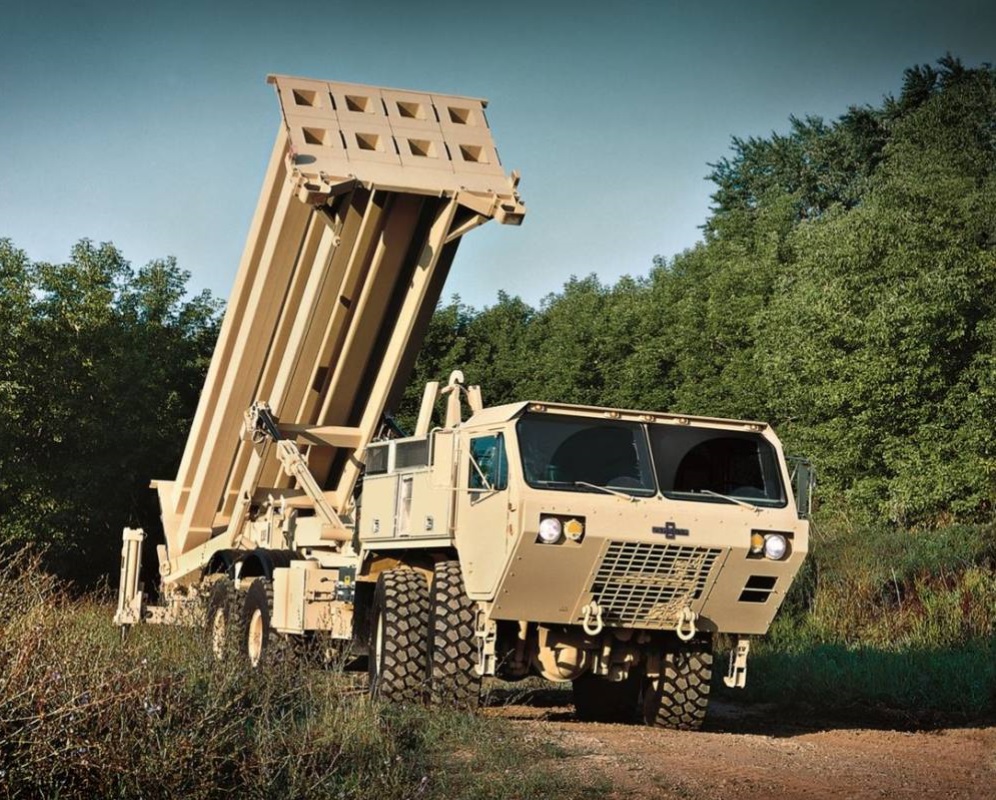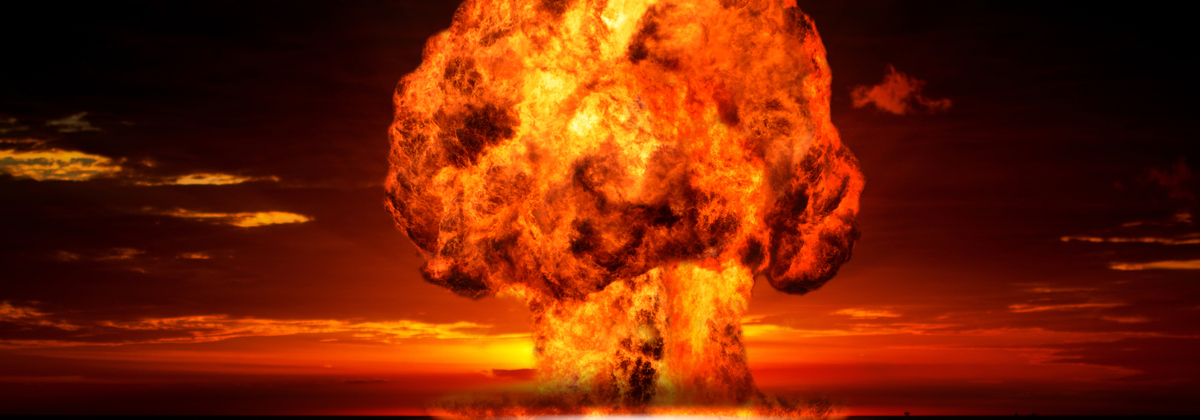 |
| ▲ Preparing THAAD missile in Korea |
North Korea carried out its 4th nuclear weapon test last January, and in February, they launched the long-range test missile, ‘Kwanmyongsong-4’. The result was increased tensions between South Korea and North and South Korea. However reaction to this development was not restricted to the two Koreas. The UN Security Council unanimously adopted resolution 2270, calling on the rogue nation to end all further development of nuclear weapons. In addition, South Korea closed the ‘Gaeseong Industrial Complex’ business, a symbol of peace between North and South Korea. Moreover, South Korea continued to develop their military capability through the U.S.-South Korea joint military exercise, which this year was the largest ever show of force in the history of their partnership.
On March 2nd, discussions about nuclear weapons development and a proposal to restrict future missile launches by North Korea entered on to the agenda of the UN Security Council5 permanent members of UN; the United States of America, China, England, France and Russia, and 10 of the non-permanent member nations were in attendance. Voting on a resolution was at first delayed by Russia in order for them to have time to fully examine the repercussions of the resolution, but in the end, it was unanimously adopted. The proposal was an aggressive maneuver designed to deal with the provocative actions of North Korea, and is said to be the most powerful list of sanctions levied against North Korea in history.
Japan insisted upon powerful global sanctions as they are equally fearful; of North Korea’s nuclear threat. While China was initially reluctant to endorse the proposal, worrying instead about destroying their trade relationship and ultimately endangering the economy of North Korea, the harsh criticism stemming from the international society and the increased warmongering by the north, was enough to persuade China to approve the proposed sanctions.
The details of the plan are as follows:
- Overall prohibition of the export of weapons of mass destruction, and conventional weapons.
- Prohibition on goods/financial transactions, technical guides and advice involving weapons.
- Any North Korean diplomat who is suspected of an illegal act will be deported.
- Prohibition on the import of natural resources such as Bukhansan iron ore.
- Prohibition on the export of aircraft and/or rocket fuel.
- Prohibition on business with North Korean banks without the permission of the restriction committee.
 |
| ▲ An attack by nuclear power |
Unlike resolutions from the past, this latest list of sanctions places massive restrictions on various parts of North Korean society. As it is focused mainly on economic sanctions, there were criticisms from a humanitarian perspective that the new restrictions may lead to food shortages and cause economic difficulties for most ordinary civilians. However, many countries saw a need for the restrictions, so that North Korean leadership will stop wasting material resources on developing nuclear weapons and focus instead on developing healthy lives for their people.
Experts argue that aside from North Korea, the Russian economy will suffer the most from these sanctions. Russian led projects being developed in North Korea will suffer under the restrictions. Ruble-based businesses between North Korea and Russia will be prohibited under the terms of the proposed restrictions. Financial exchange, which is necessary to promote business between the two countries, will also be impacted.
With the proposal as a bridgehead, impacted nations are hoping this will help spur the resumption of the six-party talks for the denuclearization of the Korean peninsula. Experts agree that by blocking financial support for the North Korean nuclear program as much as possible, they might be able to get the negotiations back on track.
South Korea, for their part, announced the closing of the Gaeseong Industrial Complex on February 12th and as a result, North Korea deported the South Korean workers to their own country. President Park Geun-hye said the shutdown of Gaeseong would help stop North Korea’s nuclear program development. Moreover, South Korea is reviewing a Terminal High Altitude Area Defense (THAAD) deployment with the U.S.A. THAAD is an American anti-ballistic missile system designed to intercept ballistic missiles at an altitude. However, people are divided on the deployment of THAAD. Those in favor argue that THAAD is important for the defense of our nation, but those opposed argue that the deployment of THAAD could cause wider diplomatic challenges. The Dankook Herald (DKH) interviewed Professor Cho Kee-yong (Dept. of Political Science and International Relations) to get a better understanding of the diplomatic situation over North Korea’s nuclear development program.
The DKH asked what the shutdown of the Gaeseong Industrial Complex represents and what he thinks about that decision. The professor explained that the reason President Park Geun-hye shut down the industrial complex was to restrict North Korea’s ability to raise funds for further developing its nuclear program. The Gaeseong Industrial Complex was intended to be a basis for peaceful economic cooperation between the two nations, but the capital generated from the plant has not had any effect on the socio-economic gap of North Korean residents while the North Korea government continued to invest instead in the development of its nuclear program.
“I support the idea of closing the Gaeseong plant because it shows our will to support economic sanctions. To impose effective economic sanctions, the US has to play a leading role because they manage global funds, but we had to show our commitment to interrupting North Korea’s method of earning foreign currency,” he answered.
In addition, according to Professor Cho, other countries have to help us prove a nuclear weapon system is useless to North Korea as we can simply deploy THAAD to defend our nation from attack. In other words, getting on board with THAAD might be enough to persuade North Korea to return to the negotiating table.
The DKH asked about the diplomatic concerns over the possible adoption of THAAD. “China and Russia have sought to counterbalance the military prowess of the US, so they don’t support the plan, even if it is well intended. China is concerned that THAAD’s strong radar system could be used to spy on their country. They argue that there is no clear evidence to prove the effectiveness of THAAD and without it, China fears the development of THAAD and its accompanying radar system would be a threat to the security of their nation,” he explained.
The DKH finally asked if there was any possibility of it becoming an instrument of a cold war system. “THAAD can be an instrument of a cold war system. However, today all nations operate though trade. If a nation adopts a cold war system, there would be a serious problem in keeping their national economy or reconstructing their country,” he answered.
North Korea’s nuclear weapons program has been controversial, yet they continue to develop the system in order to maintain power and control over their nation. After the fourth nuclear bomb test and the firing of the latest rocket, the international community criticized their actions and imposed sanctions against North Korea. In addition, the Gaeseong Industrial Complex was closed and a new draft from the UN Security Council was unanimously adopted. This might just be enough to get North Korea to return to the negotiation table.
김강산, 이다혜 dankookherald@gmail.com

![[Campus Magnifier] Let's Surf the Library!](/news/photo/202404/12496_1765_4143.jpg) [Campus Magnifier] Let's Surf the Library!
[Campus Magnifier] Let's Surf the Library!
![[Campus Magnifier] Let's Surf the Library!](/news/thumbnail/202404/12496_1765_4143_v150.jpg)





